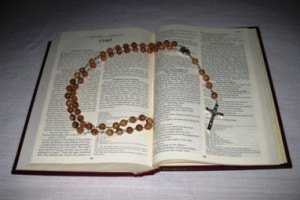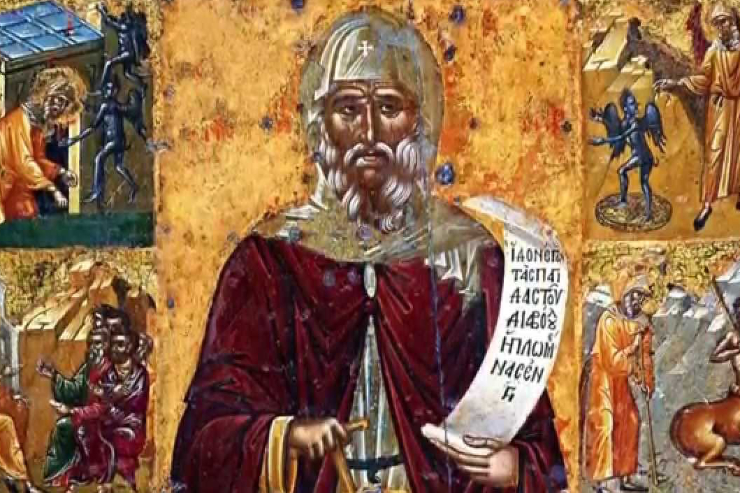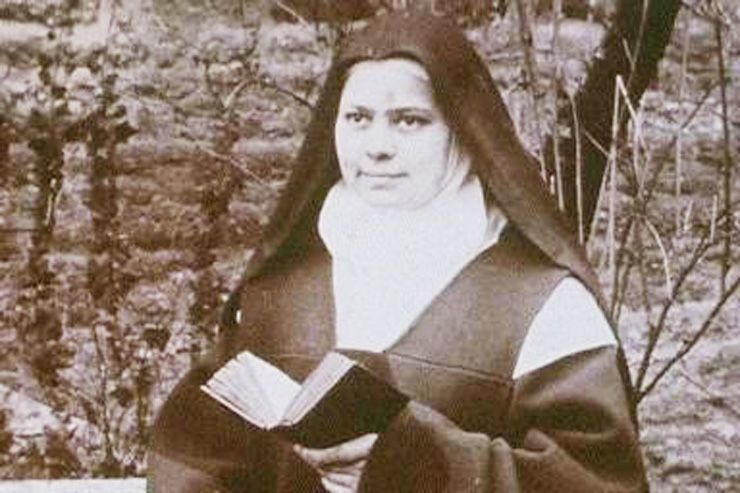 In his apostolic letter, Rosary of the Virgin Mary, Blessed Pope John Paul II observed, “The Rosary, though clearly Marian in character, is at heart a Christ-centered prayer. It has all the depth of the gospel message in its entirety.” Through the Rosary, Mary guides us in the contemplation of significant events in the gospels. By meditating upon the 20 mysteries of the Rosary, we are led closer to Christ, with the ultimate aim of imitating His virtue.
In his apostolic letter, Rosary of the Virgin Mary, Blessed Pope John Paul II observed, “The Rosary, though clearly Marian in character, is at heart a Christ-centered prayer. It has all the depth of the gospel message in its entirety.” Through the Rosary, Mary guides us in the contemplation of significant events in the gospels. By meditating upon the 20 mysteries of the Rosary, we are led closer to Christ, with the ultimate aim of imitating His virtue.
Meditation can be as mysterious as the Rosary mysteries themselves. Many Catholics would like to pray the Rosary more often but are unsure about how to meditate or where to begin. The Blessed Mother gives us the answer.
In a Church-approved apparition in Nicaragua in 1980, Mary instructed a peasant rancher in praying the Rosary. She explained that God does not like prayers that are rushed or mechanical and suggested that we pray the Rosary with Bible citations to encourage meditation on the Word of God.
To make goal a little easier, I have compiled a list of Bible references for each of the 20 mysteries of the Rosary. Our Lady of Nicaragua’s message has inspired me to read the Bible references aloud to my family each night before bed. I choose one mystery each night, and summarize in simple language that my children can understand. Afterwards, we pray a decade of the Rosary for a particular intention.
There is a traditional “rotation schedule” to help you choose which set of mysteries to meditate upon on a given day:
Monday: Joyful Mysteries
Tuesday: Sorrowful Mysteries
Wednesday: Glorious Mysteries
Thursday: Luminous Mysteries
Friday: Sorrowful Mysteries
Saturday: Joyful Mysteries
Sunday: Glorious Mysteries
The mysteries are usually listed in a timeline order. I‘ve included the virtues, or fruits, along with the Biblical references that describe each event:
Joyful Mysteries:
1. The Annunciation (Humility) Luke 1:26-38; John 1:14
2. The Visitation (Charity/Love of Neighbor) Luke 1:39-56
3. The Nativity (Poverty) Luke 2:6-20; Matthew 1:18-25
4. The Presentation (Obedience) Luke 2:22-39
5. The Finding of the Child Jesus in the Temple (Joy in finding Jesus; prudence) Luke 2:41-51
Luminous Mysteries:
1. The Baptism of Jesus (Fidelity to our baptismal promises) Matthew 3:11-17; Mark 1:9-11; Luke 3:15-22; John 1:26-34
2. The Wedding Feast at Cana (Faith in Mary‘s intercession and maternal care) John 2:1-12
3. The Proclamation of the Kingdom (Conversion of heart) Mark 1:14-15; Matthew 5:1-16; Matthew 6:33; Matthew 7:21
4. The Transfiguration (Desire to become a new person in Christ)Matthew 17:1-8; Mark 9:2-10; Luke 9:28-36
5. The Institution of the Eucharist (Love of the Eucharist; active participation at Mass); Matthew 26:26-28; Mark 22-25; Luke 22:14-20; John 6:33-59
Note: The five Luminous Mysteries, or Mysteries of Light, were introduced in 2002 by Pope John Paul II in Rosary of the Virgin Mary.
Sorrowful Mysteries:
1. The Agony in the Garden (True sorrow for sin; repentance) Matthew 26:36-46; Mark 14:32-42; Luke 22:39-46
2. The Scourging at the Pillar (Modesty and purity; mortification or self-denial) Matthew 27:26; Mark 15:15; Luke 23:16-22; John 19:1
3. The Crowning of Thorns (Moral courage; love of our enemies) Matthew 27:29-30; Mark 15:16-20; John 19: 2-3
4. The Carrying of the Cross (Patience, especially when suffering; fortitude) Luke 23: 26-32; Matthew 27:31-32; Mark 15:21; Luke 23:26-32
5. The Crucifixion (Perseverance; mercy) Luke 23: 33-46; Matthew 27: 33-54; Mark 15: 22-39; Luke 23: 33-47; John 1917-37
Glorious Mysteries:
1. The Resurrection (Faith) Matthew 28: 1-10; Mark 16: 1-18; Luke 24: 1-49; John 20:1-29
2. The Ascension (Hope) Mark: 16: 19-20; Luke 24: 50-51; Acts 1: 6-11
3. The Descent of the Holy Spirit (Love of God; gifts of the Holy Spirit) Acts 2:1-41
4. The Assumption* (Grace of a happy death; eternal happiness) Revelation 12:1
5. The Crowning of Mary as Queen of Heaven and Earth* (True devotion to Mary) Revelation 12:1
*Mary‘s Assumption and Coronation are implied in Revelation Chapter 12 and in other Biblical references, but neither is directly stated in the Bible.
Both events are part of Catholic Tradition. The Catechism of the Catholic
Church defines the Assumption in Sections 966 and 974.
Mary is the Mother of God, the Queen Mother of Christ the King. Catholics celebrate the feast of the Queenship of Mary annually on August 22nd. Maryis addressed as Queen in many titles that honor her such as Queen of the Rosary, Queen of Peace, Queen of the Angels, etc.












